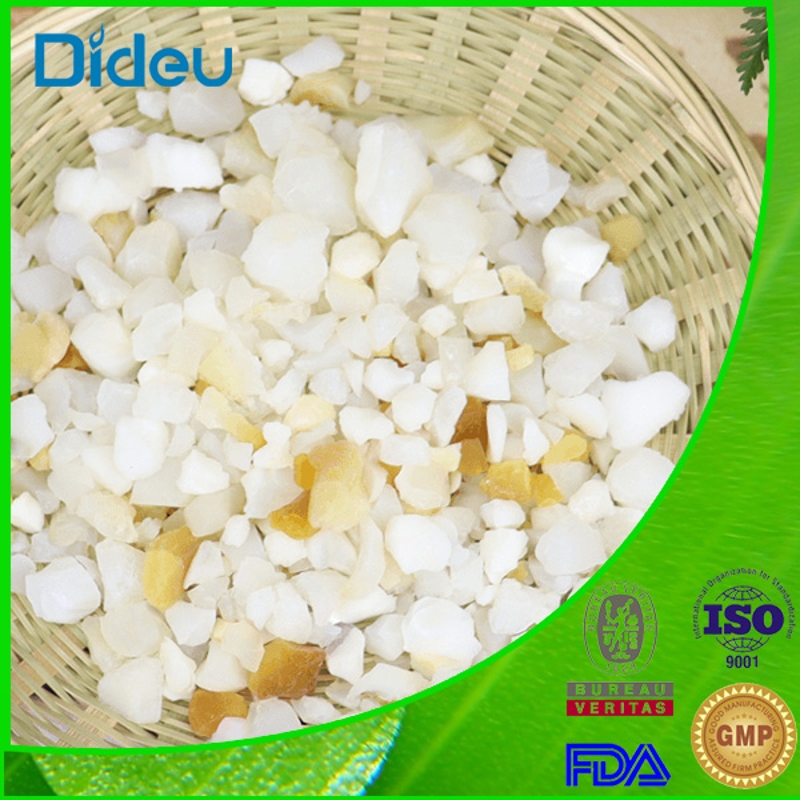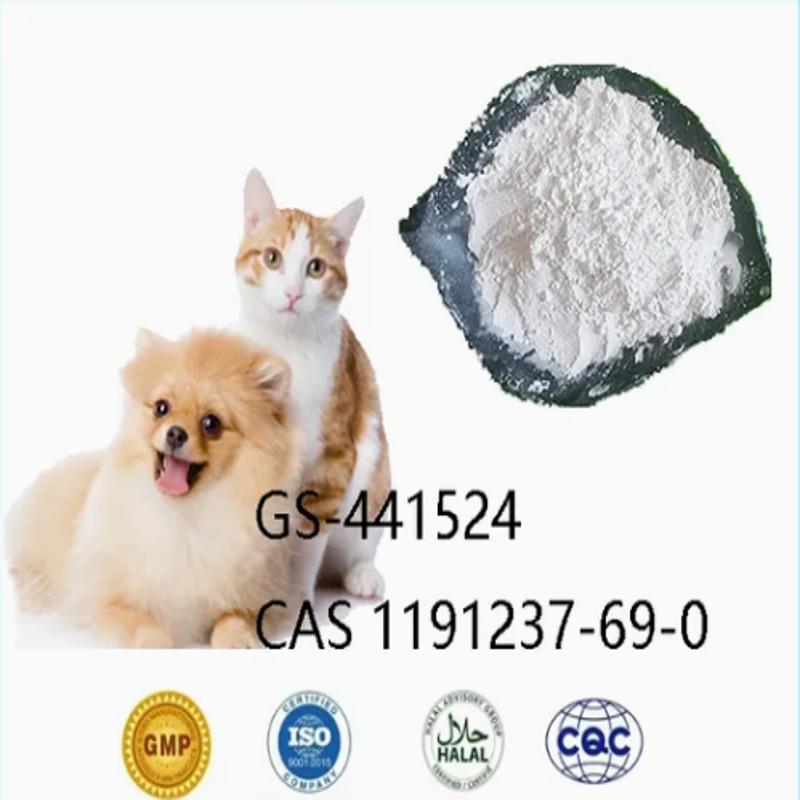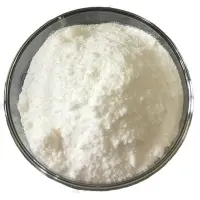-
Categories
-
Pharmaceutical Intermediates
-
Active Pharmaceutical Ingredients
-
Food Additives
- Industrial Coatings
- Agrochemicals
- Dyes and Pigments
- Surfactant
- Flavors and Fragrances
- Chemical Reagents
- Catalyst and Auxiliary
- Natural Products
- Inorganic Chemistry
-
Organic Chemistry
-
Biochemical Engineering
- Analytical Chemistry
-
Cosmetic Ingredient
- Water Treatment Chemical
-
Pharmaceutical Intermediates
Promotion
ECHEMI Mall
Wholesale
Weekly Price
Exhibition
News
-
Trade Service
Clostridium difficile (Clostridium difficile) is a gram-positive spore-producing anaerobe and is a member of the normal human intestinal flora.
Irregular use of antibiotics can lead to imbalance of the intestinal flora, and the mass growth and reproduction of drug-resistant Clostridium difficile can lead to diseases such as antibiotic-related diarrhea and pseudomembranous enteritis.
Recently, the American College of Colon and Rectal Surgeons (ASCRS) issued management guidelines for Clostridium difficile infection (CDI), which mainly provide guidance and recommendations for the management of Clostridium difficile infection, including evaluation, drug treatment, surgical treatment, and relapse or refractory Management of curative Clostridium difficile infection, etc.
1.
Evaluation 1.
When CDI is suspected clinically, a disease-specific medical history investigation should be conducted, emphasizing risk factors, symptoms, potential comorbid conditions, and signs of severe or fulminant disease.
(1C) 2.
Perform patient evaluation to determine the severity of CDI and whether there is peritonitis or multiple system organ failure.
(1C) 3.
The diagnosis of CDI should include laboratory stool testing.
The use of a 2-step test method can improve accuracy.
(1A) 4.
Routine endoscopic evaluation is not recommended to diagnose or determine the scope of CDI.
(1C) 5.
The role of imaging evaluation in CDI is limited.
(2C) Second drug treatment 6.
Inpatients with CDI should take infection control measures.
(1B) 7.
The implementation of an evidence-based antibiotic management plan can reduce the incidence of CDI.
(1B) 8.
Consider oral vancomycin or fidaxomycin as the first-line treatment for initial CDI.
Metronidazole alone is no longer considered an appropriate first-line treatment.
(1A) 9.
Probiotics may be effective in preventing CDI, but not effective in treating CDI. (2A) Three surgical treatments 10.
Surgical treatment of Clostridium difficile colitis is usually used to treat patients with colon perforation or severe colitis that has not improved by medical treatment.
(1C) 11.
Subtotal resection of the colon with terminal ileostomy is a typical surgical method for the treatment of severely complicated or explosive Clostridium difficile colitis.
(1C) 12.
An ileal shunt ostomy with anterograde colon lavage can be used as an alternative method for subtotal colonectomy to treat severely complicated or fulminant CDI.
(2C) Four relapsed and refractory CDI 13.
For patients with stable relapsed or refractory CDI, a long course of vancomycin ➕ bezlotoxumab or fidaxomycin is an acceptable treatment.
(1B) 14.
For patients with relapsed or refractory CDI, if conventional treatment measures including appropriate antibiotics fail, usually fecal bacteria transplantation (intestinal fecal bacteria transplantation) should be considered.
(1B) 15.
In patients with relapsed or refractory CDI, in addition to standard treatment, adjuvant drugs including other antibacterial agents, binding agents and probiotics can also be considered.
(2C) Recommendations for the treatment of CDI 1 Initial infection ➤ Mild-moderate infection or severe infection Vancomycin 125mg, 4 times/d or Fidaxomycin 200mg, 2 times/d, 10 days infusion of Bezlotoxumab 10mg/kg As an adjuvant treatment for high-risk patients ➤Severe complicated infections or fulminant infections Vancomycin 500mg, 4 times/d orally; combined with metronidazole 500mg, intravenously, 3 times/d For patients with intestinal obstruction, consider vancomycin Early surgical consultation for rectal administration 2 Re-infection ➤ Mild-moderate infection or severe infection If metronidazole is used for the initial treatment, vancomycin 125mg, 4 times/d, for a total of 10 days.
If vancomycin 10-day therapy is used for the treatment of the first infection, use Fidaxomycin 200 mg, 2 times/d, for a total of 10 days, or vancomycin prolonged regimen with gradual reduction or pulse administration.
If the initial infection is treated with fidaxomycin, the vancomycin prolonged regimen is gradually reduced or pulsed.
Bezlotoxumab 10mg/kg infusion, as an adjuvant treatment for high-risk patients ➤Severe complicated infection or fulminant infection Vancomycin 500mg, 4 times/d orally; combined with metronidazole 500mg, intravenously, 3 times/d for intestinal obstruction For patients, consider rectal administration of vancomycin for early surgical consultation 3 times or subsequent infections ➤ Mild-moderate infection or severe infection If fecal bacterial transplantation (FMT) is feasible, choose 10-day vancomycin treatment followed by FMTBezlotoxumab 10mg/kg Infusion, as an adjuvant treatment for high-risk patients.
If FMT is not feasible, use vancomycin extended regimen to gradually reduce the dose or pulse administration➕fidaxomycin or rifaximin ➤Severe complicated infection or fulminant infection with vancomycin 500mg, 4 times/d orally; combined with metronidazole 500mg, intravenously, 3 times/d.
For patients with intestinal obstruction, consider rectal administration of vancomycin.
Early surgical consultation reference source: 1.
Wang Guiqin, Qianghua Editor.
Medical Microbiology Studies: China Medical Science and Technology Press, 2016.
09.
2.
Vitaliy Poylin, Alexander T et al.
The American Society of Colon and Rectal Surgeons Clinical Practice Guidelines for the Management of Clostridioides difficile Infection.
Dis Colon Rectum.
2021 Jun 1;64(6 ):650-668.
doi: 10.
1097/DCR.
0000000000002047.
Irregular use of antibiotics can lead to imbalance of the intestinal flora, and the mass growth and reproduction of drug-resistant Clostridium difficile can lead to diseases such as antibiotic-related diarrhea and pseudomembranous enteritis.
Recently, the American College of Colon and Rectal Surgeons (ASCRS) issued management guidelines for Clostridium difficile infection (CDI), which mainly provide guidance and recommendations for the management of Clostridium difficile infection, including evaluation, drug treatment, surgical treatment, and relapse or refractory Management of curative Clostridium difficile infection, etc.
1.
Evaluation 1.
When CDI is suspected clinically, a disease-specific medical history investigation should be conducted, emphasizing risk factors, symptoms, potential comorbid conditions, and signs of severe or fulminant disease.
(1C) 2.
Perform patient evaluation to determine the severity of CDI and whether there is peritonitis or multiple system organ failure.
(1C) 3.
The diagnosis of CDI should include laboratory stool testing.
The use of a 2-step test method can improve accuracy.
(1A) 4.
Routine endoscopic evaluation is not recommended to diagnose or determine the scope of CDI.
(1C) 5.
The role of imaging evaluation in CDI is limited.
(2C) Second drug treatment 6.
Inpatients with CDI should take infection control measures.
(1B) 7.
The implementation of an evidence-based antibiotic management plan can reduce the incidence of CDI.
(1B) 8.
Consider oral vancomycin or fidaxomycin as the first-line treatment for initial CDI.
Metronidazole alone is no longer considered an appropriate first-line treatment.
(1A) 9.
Probiotics may be effective in preventing CDI, but not effective in treating CDI. (2A) Three surgical treatments 10.
Surgical treatment of Clostridium difficile colitis is usually used to treat patients with colon perforation or severe colitis that has not improved by medical treatment.
(1C) 11.
Subtotal resection of the colon with terminal ileostomy is a typical surgical method for the treatment of severely complicated or explosive Clostridium difficile colitis.
(1C) 12.
An ileal shunt ostomy with anterograde colon lavage can be used as an alternative method for subtotal colonectomy to treat severely complicated or fulminant CDI.
(2C) Four relapsed and refractory CDI 13.
For patients with stable relapsed or refractory CDI, a long course of vancomycin ➕ bezlotoxumab or fidaxomycin is an acceptable treatment.
(1B) 14.
For patients with relapsed or refractory CDI, if conventional treatment measures including appropriate antibiotics fail, usually fecal bacteria transplantation (intestinal fecal bacteria transplantation) should be considered.
(1B) 15.
In patients with relapsed or refractory CDI, in addition to standard treatment, adjuvant drugs including other antibacterial agents, binding agents and probiotics can also be considered.
(2C) Recommendations for the treatment of CDI 1 Initial infection ➤ Mild-moderate infection or severe infection Vancomycin 125mg, 4 times/d or Fidaxomycin 200mg, 2 times/d, 10 days infusion of Bezlotoxumab 10mg/kg As an adjuvant treatment for high-risk patients ➤Severe complicated infections or fulminant infections Vancomycin 500mg, 4 times/d orally; combined with metronidazole 500mg, intravenously, 3 times/d For patients with intestinal obstruction, consider vancomycin Early surgical consultation for rectal administration 2 Re-infection ➤ Mild-moderate infection or severe infection If metronidazole is used for the initial treatment, vancomycin 125mg, 4 times/d, for a total of 10 days.
If vancomycin 10-day therapy is used for the treatment of the first infection, use Fidaxomycin 200 mg, 2 times/d, for a total of 10 days, or vancomycin prolonged regimen with gradual reduction or pulse administration.
If the initial infection is treated with fidaxomycin, the vancomycin prolonged regimen is gradually reduced or pulsed.
Bezlotoxumab 10mg/kg infusion, as an adjuvant treatment for high-risk patients ➤Severe complicated infection or fulminant infection Vancomycin 500mg, 4 times/d orally; combined with metronidazole 500mg, intravenously, 3 times/d for intestinal obstruction For patients, consider rectal administration of vancomycin for early surgical consultation 3 times or subsequent infections ➤ Mild-moderate infection or severe infection If fecal bacterial transplantation (FMT) is feasible, choose 10-day vancomycin treatment followed by FMTBezlotoxumab 10mg/kg Infusion, as an adjuvant treatment for high-risk patients.
If FMT is not feasible, use vancomycin extended regimen to gradually reduce the dose or pulse administration➕fidaxomycin or rifaximin ➤Severe complicated infection or fulminant infection with vancomycin 500mg, 4 times/d orally; combined with metronidazole 500mg, intravenously, 3 times/d.
For patients with intestinal obstruction, consider rectal administration of vancomycin.
Early surgical consultation reference source: 1.
Wang Guiqin, Qianghua Editor.
Medical Microbiology Studies: China Medical Science and Technology Press, 2016.
09.
2.
Vitaliy Poylin, Alexander T et al.
The American Society of Colon and Rectal Surgeons Clinical Practice Guidelines for the Management of Clostridioides difficile Infection.
Dis Colon Rectum.
2021 Jun 1;64(6 ):650-668.
doi: 10.
1097/DCR.
0000000000002047.







